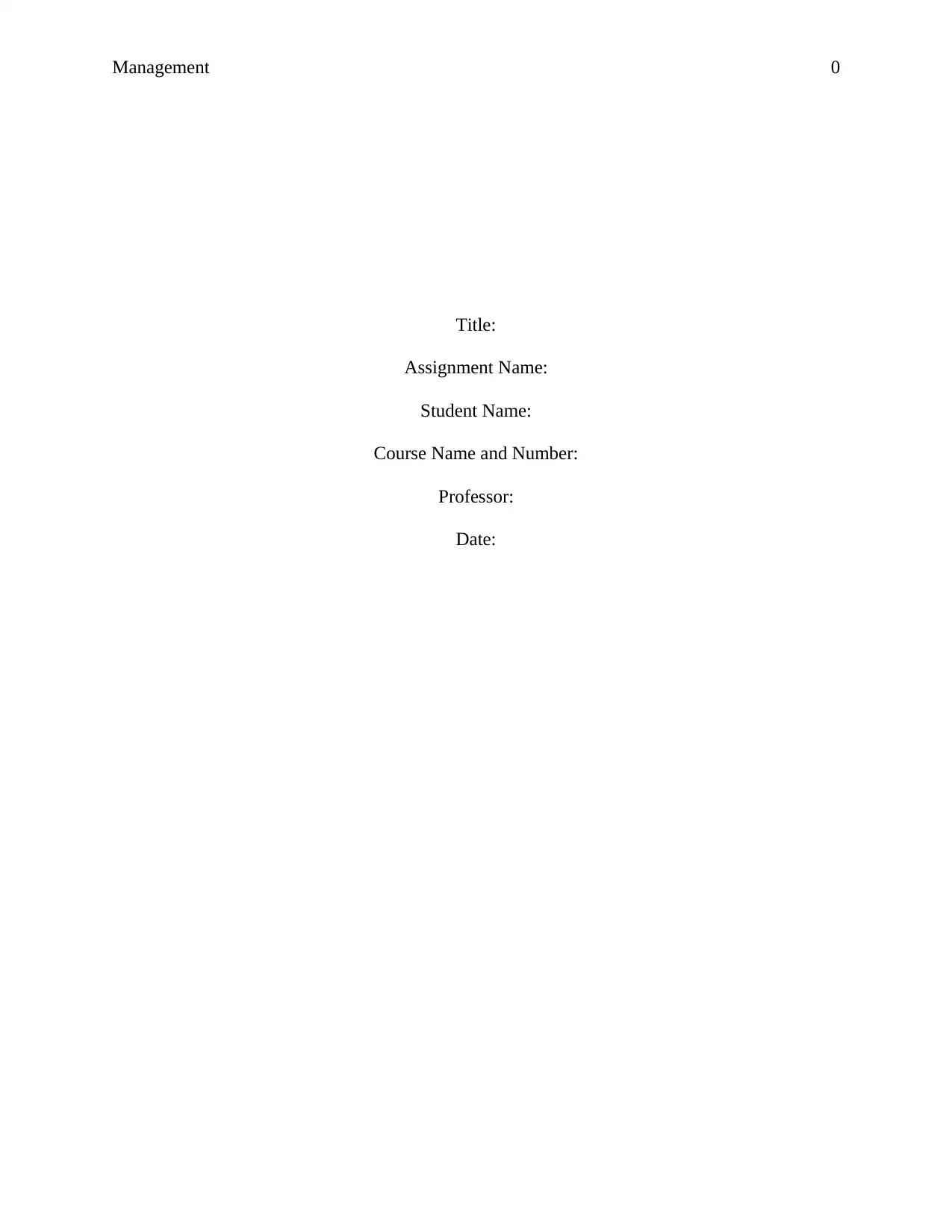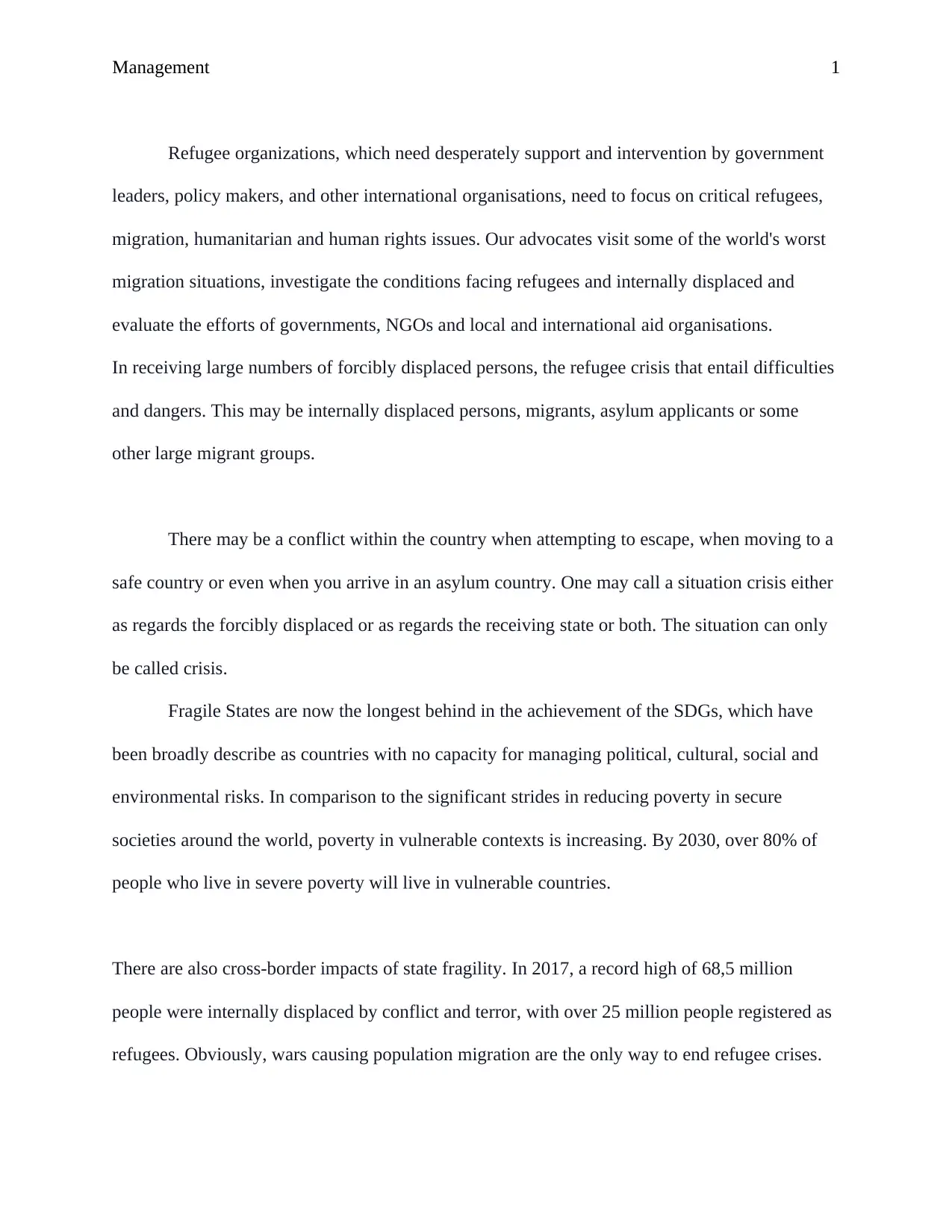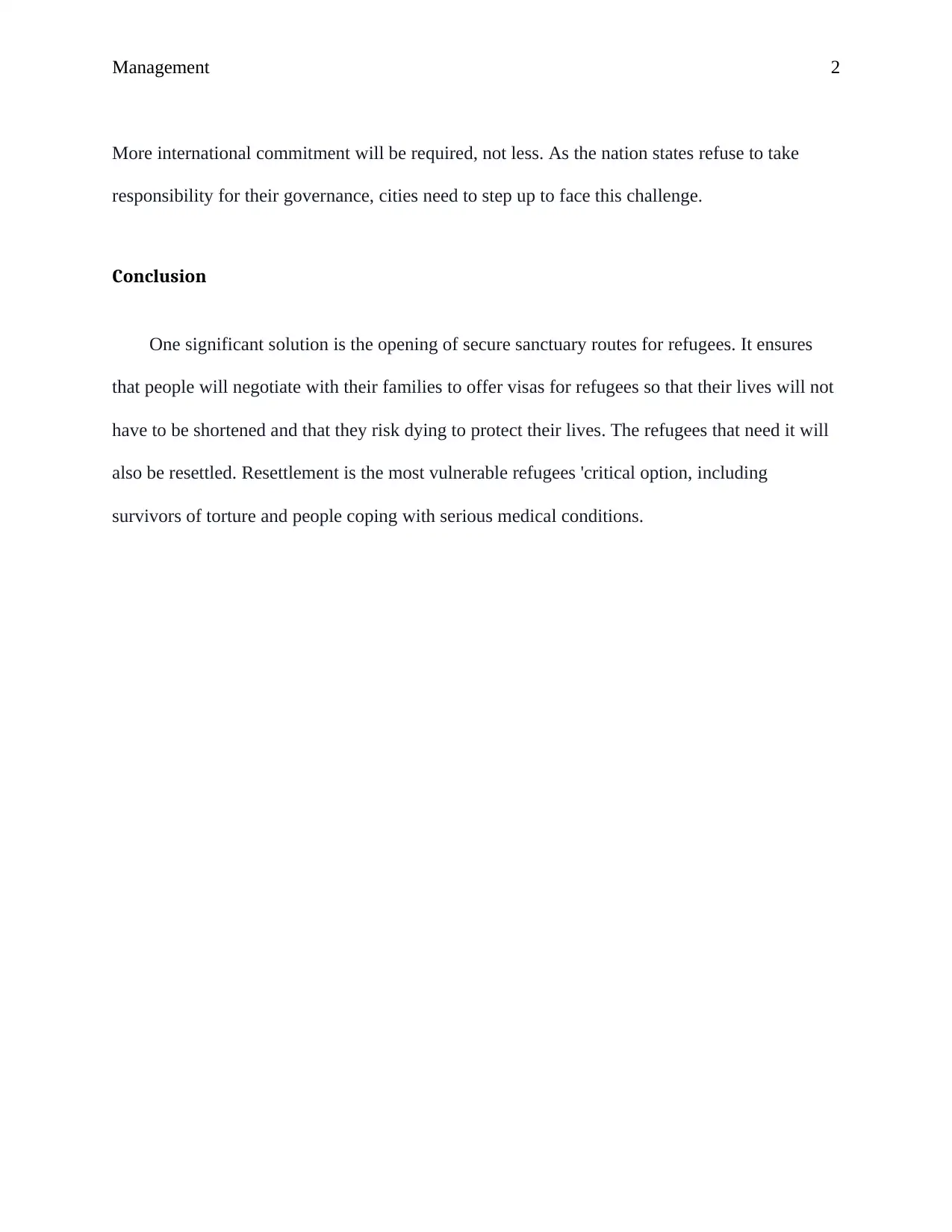Refugee Crisis: Examining Government, NGO, and International Roles
VerifiedAdded on 2022/09/12
|3
|423
|19
Discussion Board Post
AI Summary
This discussion post addresses the refugee crisis, focusing on the roles of governments, NGOs, and international organizations in managing migration and providing aid to displaced persons. It highlights the challenges faced by refugees and asylum seekers, including the impact of conflict and the difficulties in finding safe havens. The post emphasizes the need for secure sanctuary routes, resettlement programs, and international cooperation to address the crisis. It also touches on the role of fragile states and the importance of achieving sustainable development goals. The discussion encourages an examination of the central arguments presented, difficult concepts, and the theories discussed in the course materials, promoting a comprehensive understanding of the complexities of the refugee situation.
1 out of 3










![[object Object]](/_next/static/media/star-bottom.7253800d.svg)